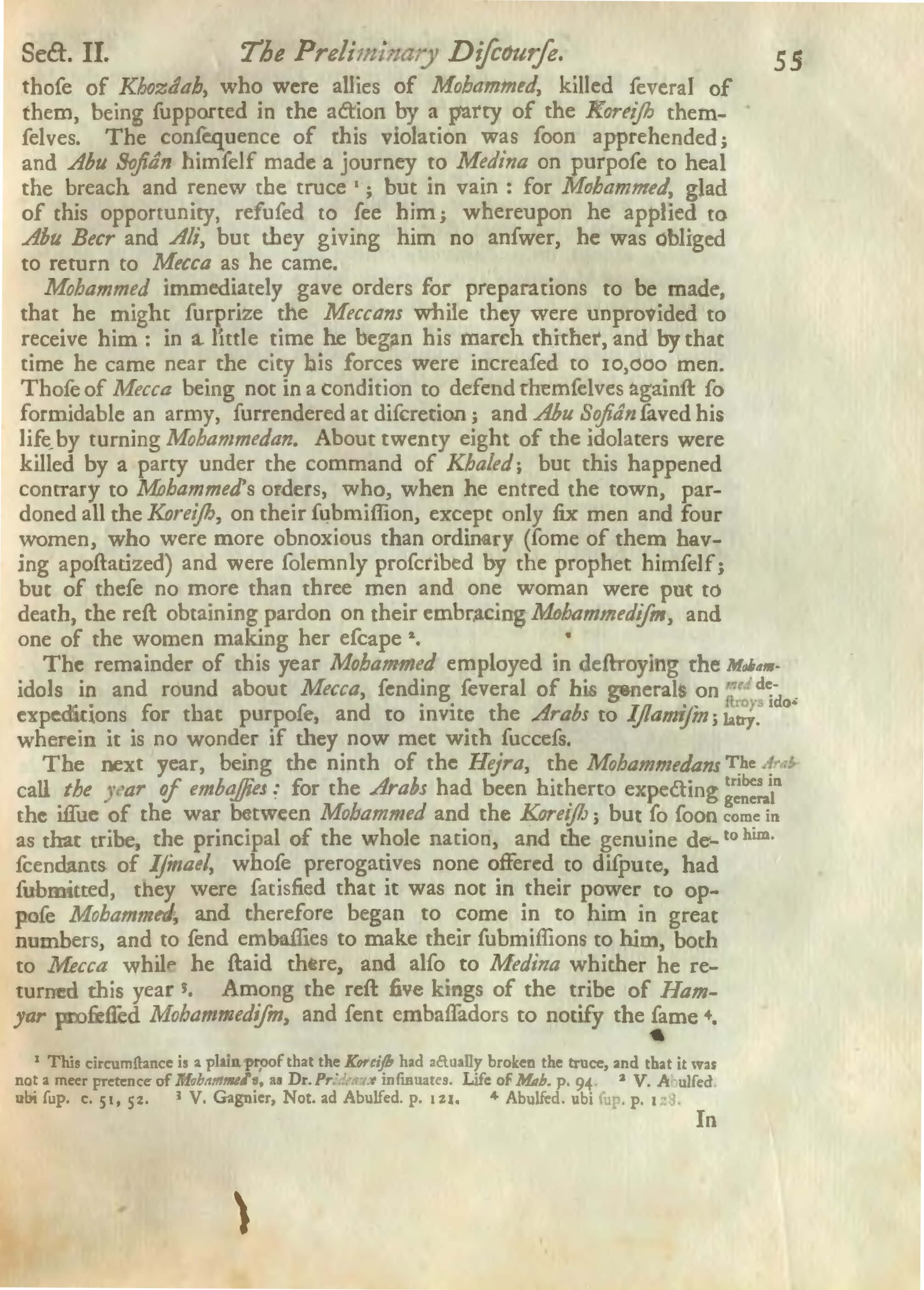George Sale, The Koran, commonly called the Alcoran of Mohammed, translated into English immediately from the original Arabic; with Explanatory Notes, taken from the most approved Commentators. To which is prefixed A Preliminary Discource (1734)
those of Khozâah, who were allies of Mohammed, killed several of them, being supported in the action by a party of the Koreish themselves. The consequence of this violation was soon apprehended; and Abu Sofiân himself made a journey to Medina on purpose to heal the breach and renew the truce 1; but in vain: for Mohammed, glad of this opportunity, refused to see him; whereupon he applied to Abu Becr and Ali, but they giving him no answer, he was obliged to return to Mecca as he came.
Mohammed immediately gave orders for preparations to be made, that he might surprize the Meccans while they were unprovided to receive him: in a little time he began his march thither, and by that time he came near the city his forces were increased to 10,000 men. Those of Mecca being not in a condition to defend themselves against so formidable an army, surrendered at discretion; and Abu Sofiân saved his life by turning Mohammedan. About twenty eight of the idolaters were killed by a party under the command of Khaled; but this happened contrary to Mohammed’s orders, who, when he entred the town, pardoned all the Koreish, on their submission, except only six men and four women, who were more obnoxious than ordinary (some of them having apostatized) and were solemnly proscribed by the prophet himself; but of these no more than three men and one woman were put to death, the rest obtaining pardon on their embracing Mohammedism, and one of the women making her escape 2.
Mohammed destroys idolatry.
The remainder of this year Mohammed employed in destroying the idols in and round about Mecca, sending several of his generals on expeditions for that purpose, and to invite the Arabs to Islamism; wherein it is no wonder if they now met with success.
The Arab tribes in general come into him.
The next year, being the ninth of the Hejra, the Mohammedans call the year of embassies: for the Arabs had been hitherto expecting the issue of the war between Mohammed and the Koreish; but so soon as that tribe, the principal of the whole nation, and the genuine descendants of Ismael, whose prerogatives none offered to dispute, had submitted, they were satisfied that it was not in their power to oppose Mohammed, and therefore began to come in to him in great numbers, and to send embassies to make their submissions to him, both to Mecca while he staid there, and also to Medina whither he returned this year 3. Among the rest five kings of the tribe of Hamyar professed Mohammedism, and sent embassadors to notify the same 4.
1 This circumstance is a plain proof that the Koreish had actually broken the truce, and that it was not a meer pretence of Mohammed’s, as Dr. Prideaux insinuates. Life of Mah. p. 94.
2 V. Abulfed. ubi sup. c. 51, 52.
3 Gagnier, Not. ad Abulfed. p. 121.
4 Abulfed. ubi sup. p. 128.
